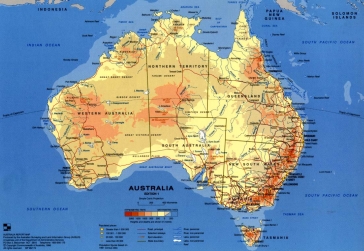Image: Australia.gov.au
Human species is an interesting one. Perhaps the only species which intentionally destroys it’s own habitat. This species pronounced itself ‘the crown of creation’ and this very species can’t stand resisting it’s own rules. Even so called democratic societies willing to punish everybody who ‘deviate’ from the declared ‘common law’ even if he or she doesn’t heart anybody.



Thank you Janos, right to the heart of the matter. Much of westernised law was based on property rights. The question often arose with explorers who encountered nomadic peoples. For the wanderers each place was important, perhaps fitting into a larger time cycle (only used every few years, but vital nonetheless). Some of the wiser explorers understood this. Of course it didn’t sit too well with the monopolies (e.g. The British State, or Roman Church). They wanted the land and then set about genocide. Good examples come from Native American First Peoples (read any of Angie Debo’s works to get a good picture.
New Zealand saw the Treaty of Waitangi (1840?) both sides understood it differently. The Maori didn’t give away their land, but rather let the British use it. I believe this is what underpins the Maori Nations now ~ they demand to be included in all environmental legislation, and no doubt other things 🙂
This is indeed a tricky issue that none of the Western colonisers have ever thought about. Tribal rights appear to be more and more at the forefront, given that tribal leaders at the time when tribal land was taken and distributed to colonisers were illiterate and hardly understood what the implications were. That is not the case today, since tribal people now have access to education, and have a better understanding of their rights within their own countries.